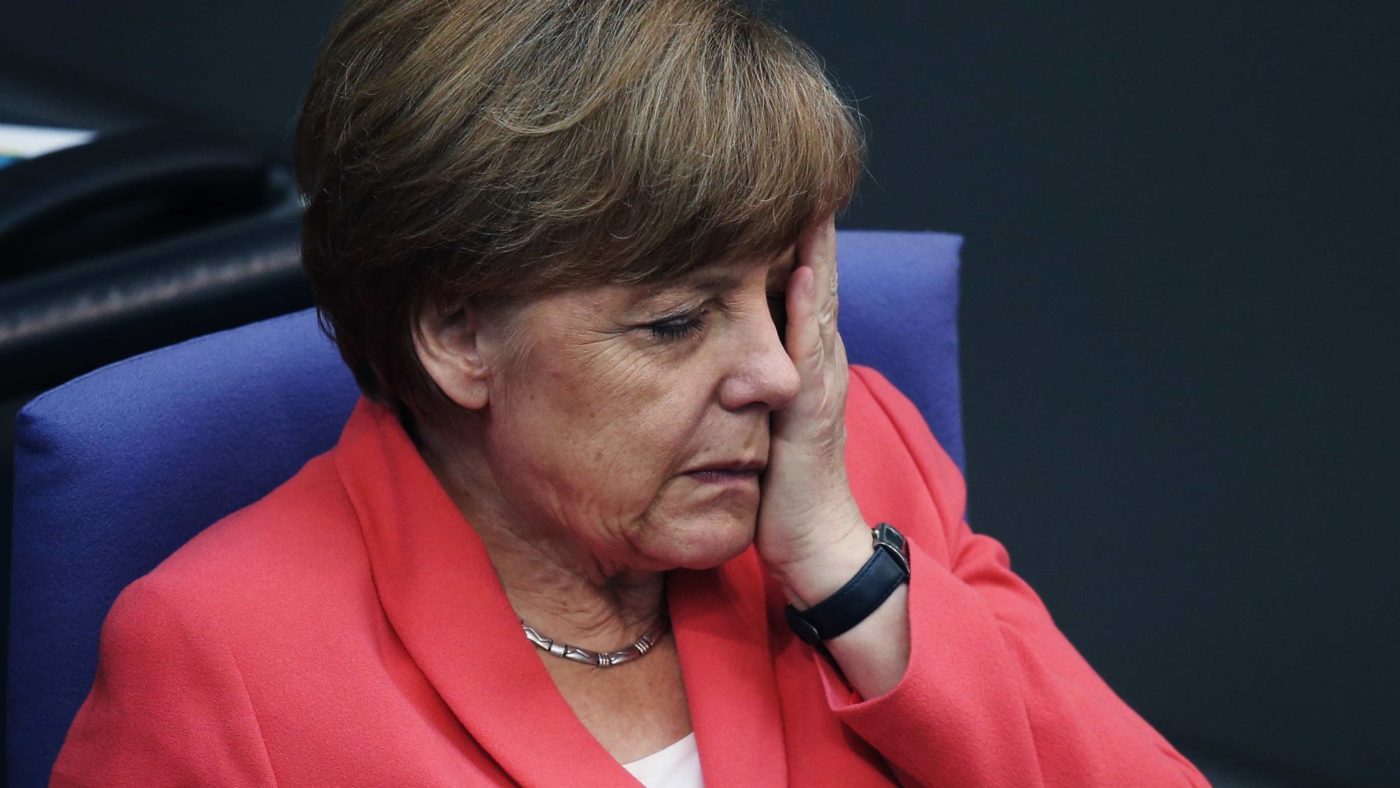Angela Merkel appears odds-on to return to power as Germans go to the polls on 24 September, either in coalition with the liberal Free Democrats (FDP) or in a “grand coalition” with the Social Democrats (SPD). The SPD remains the largest challenger to Merkel’s dominance, but it is struggling to lay a glove on a respected opponent.
The one and only leaders’ debate pitted Merkel against the SPD’s, Martin Schulz. On much domestic policy there was little to choose between them. Merkel and Schulz were, for example, at pains to suggest that the German car industry needed to do better in the face of the Abgasskandal, as the diesel emissions scandal is known. Quite how far they are going to go to make sure that happens is much less clear.
Yet Germany has a much broader corruption problem. It is, however, largely unaware of it. That might sound odd. But for many Germans, corruption is something that happens elsewhere. You don’t bribe traffic police in Germany and you stringently follow the rules when filling in your tax returns. The majority of Germans never get anywhere near experiencing corruption directly.
That experience is largely borne out in Germany’s performance in international corruption indices. For what they are worth (and some don’t think that they are worth that much), Germany came joint 10th (out of 176) in Transparency International’s most recent Corruption Perceptions Index and just outside the top 10 in the World Bank’s World Governance Indicators. The Nordic countries (and New Zealand) might top these tables, but Germany is rarely too far behind.
Yet one thing that the Abgasskandal has further highlighted is that the behaviour of corporate Germany doesn’t always live up to expectations. The antics of diesel car makers are hardly the first example of German firms bending the rules to breaking point.
The cases of Siemens and Daimler illustrate that there have been occasions over the last decade when companies acted in a fashion that belies the excellent reputation of German business.
Industrial group Siemens has admitted using a wide-ranging system of bribes to help it achieve its business goals, leading to a US$1.3 billion legal settlement in the US in 2008 and total costs to the company of €2.5 billion.
Car company Daimler, meanwhile, paid US$185m to settle charges that it violated the American Foreign Corrupt Practices Act when trying to win government contracts in 22 countries between 1998 and 2008. These aren’t isolated examples.
German authorities, to their credit, have responded to this and there has been a move to prosecute more miscreants. Many German multinationals have subsequently given serious thought (and resources) to their compliance programmes. Siemens, for example, rolled out an expansive internal training and education programme and now has a compliance programme that is industry-leading.
That’s all to be commended. These developments have nonetheless still not stopped German companies from transgressing. If compliance programmes were working properly across the board, then Rheinmetall wouldn’t have paid €37m to settle a criminal investigation in to bribery whilst selling its anti-aircraft defence system. Volkswagen wouldn’t have been called out for massaging the emissions figures for the diesel cars that it sold in the US and elsewhere.
The problem for Merkel and Schulz is twofold. Firstly German exporters have been actively encouraged to invest in developing markets. And they have done that very impressively. Some €71 billion of German products went to China alone in 2015. The high-cost, high-quality exports that the small and medium-sized businesses in Germany’s famed Mittelstand have produced are the backbone of the German economy.
Corruption is often a serious problem in these emerging markets. Larger German firms have now generally adopted compliance programmes that look to deal with the risks of doing business in such environments. Smaller Mittelstand companies, however, have not experienced the compliance shock that larger companies frequently have. Many of them, as a result, have poorly developed compliance programmes or no programmes at all. As the European Commission noted in 2014:
“When it comes to small and medium sized enterprises, corporate governance programmes and compliance structures are not yet widespread.”
Big German companies have caught the eye for their misdemeanours, but it is the real engine of the German economy – the Mittelstand – that is arguably playing catch up the most.
The second issue is that German politicians are not neutral arbiters in all of this. In the case of VW, politicians from the state of Lower Saxony, which owns part of the company, sit on the board. Politicians in that position have a clear interest in VW doing well just as they have an obligation to check that it doesn’t do so at the expense of others. This isn’t constructive ambiguity. This is a real risk of conflict of interest.
The challenge for the government which emerges from the German election is threefold. Firstly, acknowledge that German business has an anti-corruption problem. Secondly, whoever leads the next government needs to show that they take this problem seriously; bringing in a German version of the American Foreign Corrupt Practices Act or the UK’s Bribery Act would be a good move in this direction.
Thirdly, there were once good reasons for politicians to sit on both sides of the corporate fence. They no longer hold water. Cosy relationships between business and politicians are, in times of increased suspicion, not good for either side. That is a significant agenda for change. And we are about to see if Merkel or Schulz will have the stomach for it.
This article was originally published on The Conversation. Read the original article.


